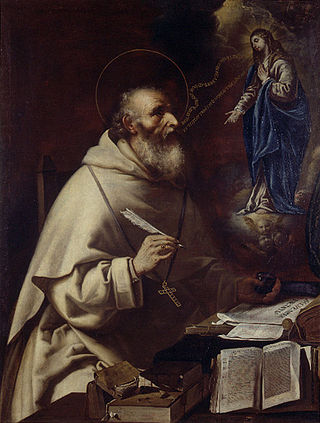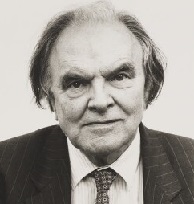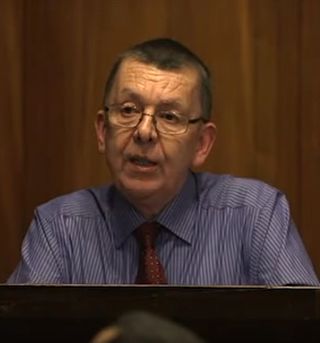Related Research Articles

Albertus Magnus, also known as Saint Albert the Great, Albert of Swabia or Albert of Cologne, was a German Dominican friar, philosopher, scientist, and bishop, considered one of the greatest medieval philosophers and thinkers.
Natural law is a system of law based on a close observation of natural order and human nature, from which values, thought by natural law's proponents to be intrinsic to human nature, can be deduced and applied independently of positive law. According to the theory of law called jusnaturalism, all people have inherent rights, conferred not by act of legislation but by "God, nature, or reason". Natural law theory can also refer to "theories of ethics, theories of politics, theories of civil law, and theories of religious morality".

Scholasticism was a medieval school of philosophy that employed a critical organic method of philosophical analysis predicated upon Aristotelianism and the Ten Categories. Christian scholasticism emerged within the monastic schools that translated scholastic Judeo-Islamic philosophies, and "rediscovered" the collected works of Aristotle. Endeavoring to harmonize his metaphysics and its account of a prime mover with the Latin Catholic dogmatic trinitarian theology, these monastic schools became the basis of the earliest European medieval universities, and thus became the bedrock for the development of modern science and philosophy in the Western world. Scholasticism dominated education in Europe from about 1100 to 1700. The rise of scholasticism was closely associated with these schools that flourished in Italy, France, Portugal, Spain and England.

Marsilius of Inghen was a medieval Dutch Scholastic philosopher who studied with Albert of Saxony and Nicole Oresme under Jean Buridan. He was Magister at the University of Paris as well as at the University of Heidelberg from 1386 to 1396.

Giles of Rome O.S.A. was a medieval philosopher and Scholastic theologian and a friar of the Order of St Augustine, who was also appointed to the positions of prior general of his order and as Archbishop of Bourges. He is famed as being a logician, who produced a commentary on the Organon by Aristotle, and as the author of two important works: De ecclesiastica potestate, a major text of early-14th-century papalism, and De regimine principum, a guide book for Christian temporal leadership. Giles was styled Doctor Fundatissimus by Pope Benedict XIV.

Peter Thomas Geach was a British philosopher who was Professor of Logic at the University of Leeds. His areas of interest were philosophical logic, ethics, history of philosophy, philosophy of religion and the theory of identity.

Aristotelianism is a philosophical tradition inspired by the work of Aristotle, usually characterized by deductive logic and an analytic inductive method in the study of natural philosophy and metaphysics. It covers the treatment of the social sciences under a system of natural law. It answers why-questions by a scheme of four causes, including purpose or teleology, and emphasizes virtue ethics. Aristotle and his school wrote tractates on physics, biology, metaphysics, logic, ethics, aesthetics, poetry, theatre, music, rhetoric, psychology, linguistics, economics, politics, and government. Any school of thought that takes one of Aristotle's distinctive positions as its starting point can be considered "Aristotelian" in the widest sense. This means that different Aristotelian theories may not have much in common as far as their actual content is concerned besides their shared reference to Aristotle.

Analytical Thomism is a philosophical movement which promotes the interchange of ideas between the thought of Thomas Aquinas, and modern analytic philosophy.

The Summa contra Gentiles is one of the best-known treatises by Thomas Aquinas, written as four books between 1259 and 1265.

Thomism is the philosophical and theological school which arose as a legacy of the work and thought of Thomas Aquinas (1225–1274), the Dominican philosopher, theologian, and Doctor of the Church.
John Baconthorpe, OCarm was a learned English Carmelite friar and scholastic philosopher.

The Summa Theologiae or Summa Theologica, often referred to simply as the Summa, is the best-known work of Thomas Aquinas (1225–1274), a scholastic theologian and Doctor of the Church. It is a compendium of all of the main theological teachings of the Catholic Church, intended to be an instructional guide for theology students, including seminarians and the literate laity. Presenting the reasoning for almost all points of Christian theology in the West, topics of the Summa follow the following cycle: God; Creation, Man; Man's purpose; Christ; the Sacraments; and back to God.
Summa and its diminutive summula was a medieval didactics literary genre written in Latin, born during the 12th century, and popularized in 13th century Europe. In its simplest sense, they might be considered texts that 'sum up' knowledge in a field, such as the compendiums of theology, philosophy and canon law. Their function during the Middle Ages was largely as manuals or handbooks of necessary knowledge used by individuals who would not advance their studies any further.

Brian Evan Anthony Davies is a British philosopher, Roman Catholic priest, and friar. He is Distinguished Professor of Philosophy, Fordham University, and author of An Introduction to the Philosophy of Religion, now in its fourth English edition, which has been translated into five languages.

The Thomas-Institut is a research Institute whose function is to study medieval philosophy by preparing critical editions as well as historical and systematic studies of medieval authors.

Thomas Aquinas was an Italian Dominican friar and priest, an influential philosopher and theologian, and a jurist in the tradition of scholasticism. He was from the county of Aquino in the Kingdom of Sicily.

John of Głogów was a notable Polish polyhistor at the turn of the Middle Ages and Renaissance—a philosopher, geographer and astronomer at the University of Krakow.

Over the ages, Italian philosophy had a vast influence on Western philosophy, beginning with the Greeks and Romans, and going onto Renaissance humanism, the Age of Enlightenment and modern philosophy. Philosophy was brought to Italy by Pythagoras, founder of the school of philosophy in Crotone, Magna Graecia. Major philosophers of the Greek period include Xenophanes, Parmenides, Zeno, Empedocles and Gorgias. Roman philosophers include Cicero, Lucretius, Seneca the Younger, Musonius Rufus, Plutarch, Epictetus, Marcus Aurelius, Clement of Alexandria, Sextus Empiricus, Alexander of Aphrodisias, Plotinus, Porphyry, Iamblichus, Augustine of Hippo, Philoponus of Alexandria and Boethius.

Medieval philosophy is the philosophy that existed through the Middle Ages, the period roughly extending from the fall of the Western Roman Empire in the 5th century until after the Renaissance in the 13th and 14th centuries. Medieval philosophy, understood as a project of independent philosophical inquiry, began in Baghdad, in the middle of the 8th century, and in France and Germany, in the itinerant court of Charlemagne in Aachen, in the last quarter of the 8th century. It is defined partly by the process of rediscovering the ancient culture developed in Greece and Rome during the Classical period, and partly by the need to address theological problems and to integrate sacred doctrine with secular learning. This is one of the defining characteristics in this time period. Understanding God was the focal point of study of the philosophers at that time, Muslim and Christian alike.
References
- 1 2 Barry, C. M. "Peter of Ireland, Teacher of Aquinas". Irish Philosophy. Retrieved June 8, 2020.
- ↑ Dunne, M. "Peter of Ireland, the University of Naples and Thomas Aquinas' Early Education" (PDF). Yearbook of the Irish Philosophical Society. 2006: 84. S2CID 160634587. Archived from the original (PDF) on February 20, 2020. Retrieved June 8, 2020.
- ↑ Crowe, M. B. (October 25, 2023). "Peter of Ireland: Teacher of St Thomas Aquinas". Studies: An Irish Quarterly Review. 45 (180): 443–456. JSTOR 30098834.